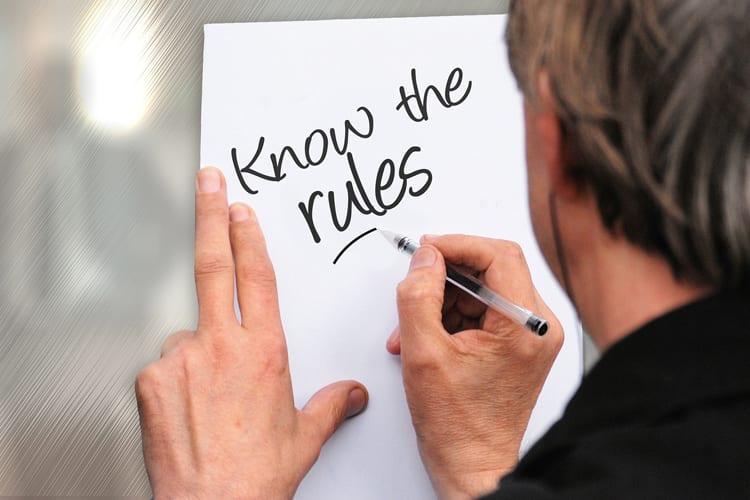Looking ahead to 2019, there are some new laws taking effect that you should know. We spoke with Stephanie Webb, associate attorney at Radix Law in Scottsdale about these laws including minimum wage, an additional recess period and the Farm Bill and how they will affect Arizonans.
Minimum wage in Arizona increases to $11 per hour
Effective in January and is the third of four annual increases mandated by voters in 2016.

Stephanie Webb: “It’s a 50¢ increase from 2018, it’s happening over four years and it’s 50¢ each year, and this year it’s up to $11/hour if you’re a non-tip earning employee, and it’s $8/hour if you are earning tips. This is the third of the fourth annual increase that was passed by Prop 206 in 2016 by voters, and the goal is to increase the standard of living for the hourly-wage workers.
“A 50¢ increase does a lot and it’s sort of striking a balance between the needs of the employees who are looking to be paid a little bit more and hopefully increase their quality of life, but also not putting too much of a strain on employers by having a huge bump in pay to a large number of workers at one time. So, the worst-case scenario is you try to increase the wages to the workers, but then the employers can’t afford the bump and end up having to lay people off, so the goal is to do it gradually, so employers can rework their budget a little bit and make sure they’re able to keep their workers on at the higher rate.”
Arizona increases vehicle registration
Arizona motorists will have a new $32 fee in addition to their annual vehicle registration fee for 2019 and applies for renewals due in January.
Most vehicles will pay $32 annually. Street-legal golf carts and primarily off-highway vehicles will pay $5.
SW: “This is a brand-new fee, so it’s going to be an additional $32 Arizonans are going to have to pay when they register their vehicle, which is to fund the Department of Public Safety’s highway patrol operations and road upkeep.
This legislation is receiving a bit of pushback because when legislators initially announced that they were going to try to pass this bill, they estimated that it was going to be a $16 fee — it’s about double that after they got it passed once the Department of Transportation looked at the number of people who would be paying the fee. This is because some people had already registered their vehicle for 2 or 5 years, and they wouldn’t be paying the fee in 2019.
It is larger than legislators anticipated at the time when they passed the bill and there is a proposal to repeal it pending right now, however, Gov. Ducey has indicated he doesn’t anticipate it will be repealed but it is on the table. If it was repealed it would do away with the $32 fee, I would anticipate that would happen in early 2019.
It can be expensive to register your vehicle and I think that’s part of the reason people were upset that the fee is $32 instead of $16. Unfortunately, if drivers want a vehicle you’re going to have to register your car, so they’ll have to adjust with what the Legislature decides to do.”
Two recess periods mandated for fourth and fifth-grade students
Gov. Doug Ducey signed into law legislation that mandates Arizona public schools provide at least two recess periods per day for students through fifth grade.
SW: “It’s currently in place through third grade, and in 2019, the fourth and fifth graders are going to be added to that, so starting in January the two recesses a day as opposed to the one recess a day will be in place for all students up through fifth grade for public and charter schools.
“The theory is we don’t want kids sitting for such a long period of time, it makes it difficult for them to focus, and they need to have a break and get up, stretch, run around and play a little bit. It helps them concentrate a little bit more and work on their studies when they go back to the classroom refreshed after getting to play a little bit.
The Legislature did not mandate to schools how they have to take their breaks, so each individual school is allowed to work with their schedule and work with their kids. The Legislature thinks the schools know their kids best, so they’re allowed to break up those recesses however they would like and however best fits with the schedule that they have in place already.”
Farm Bill makes hemp & CBD industry legal
President Trump signed Farm Bill, making the hemp and CBD industry legal.
SW: “The Farm Bill does a few other things other than just legalize CBD, which is to fund various nutritional assistance programs and provide subsidies for agriculture and conservation programs.
CBD is already legal in 47 states, but the concern is because it was not legal at the federal level, that you couldn’t transport it across state lines and things like that, so by making it a federal law that CBD is now legal, it can be transported across state lines and it also allows for the Department of Agriculture to oversee the production and manufacture of it and regulate the foods and other goods that CBD is placed into.
“There is research that CBD helps with seizures and arthritis, and the goal is to hopefully allow more access to CBD now that it’s legal federally, and balance that with allowing the government to regulate it. I think we’ll be seeing more of it, and I know the Arizona Farm Bureau backed the bill, so I think the farmers are excited the bill has passed and they’re now going to be able to grow this legally and on larger scales now that it can be transported to other states and used in more products with federal approval.”




